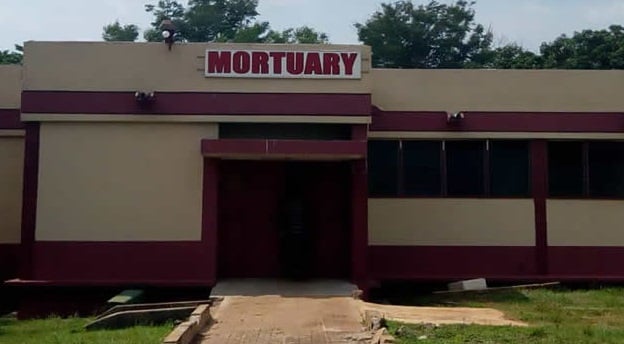The Ghana Registered Nurses and Midwives Association (GRNMA) embarked on a nationwide strike, significantly impacting healthcare delivery across the country. The strike’s root cause lies in the stalled negotiations between the GRNMA and the government regarding new service conditions for nurses. The government proposed deferring the implementation of these improved conditions until 2026, a proposal vehemently rejected by the nurses’ association. This impasse has led to a concerning escalation in tensions and a disruption of essential healthcare services, leaving patients vulnerable and placing an immense strain on the healthcare system. The ripple effects of this labor dispute have extended beyond hospitals and clinics, reaching into the very fabric of communities.
The Mortuary Workers Association of Ghana (MOWAG) has voiced profound alarm over a disturbing trend – a significant surge in the number of bodies received at mortuaries nationwide. Richard Kofi Jordan, the General Secretary of MOWAG, directly attributed this unsettling increase in mortality to the ongoing nurses’ strike. The absence of nurses in healthcare facilities has created a critical gap in patient care, leading to a deterioration in health outcomes and, tragically, an increase in preventable deaths. Jordan’s statement underscores the gravity of the situation, highlighting the direct correlation between the lack of nursing care and the rise in fatalities. This alarming development paints a stark picture of the human cost of the unresolved labor dispute between the government and the GRNMA.
The statistics presented by MOWAG paint a grim picture of the strike’s impact. In some areas, the number of bodies received at mortuaries has more than doubled. Where previously an average of 10 deaths were recorded daily, mortuaries are now receiving between 20 and 25 bodies. This stark increase starkly illustrates the severity of the situation and the direct consequences of the absence of nurses in healthcare settings. The figures underscore the crucial role nurses play in providing essential care and maintaining patient well-being, and the devastating impact their absence has on already vulnerable populations. This alarming trend serves as a stark reminder of the urgent need for a resolution to the ongoing labor dispute.
The escalating crisis has intensified calls for immediate and meaningful dialogue between the government and the GRNMA. The urgency of the situation demands swift action to address the underlying issues fueling the strike and to restore essential healthcare services. Mediation efforts are crucial to bridge the divide between the two parties and find a mutually acceptable solution that prioritizes patient care and the well-being of healthcare workers. The lives of countless Ghanaians hang in the balance, underscoring the critical need for a swift and effective resolution to this escalating crisis.
The strike’s impact extends beyond the immediate concern of patient care. The disruption of healthcare services has broader societal implications, affecting families, communities, and the overall functioning of the nation. The ongoing impasse threatens to further destabilize an already strained healthcare system, potentially leading to long-term consequences for public health. The economic repercussions of the strike are also significant, with the potential to disrupt productivity and hamper development. The government’s failure to address the legitimate concerns of healthcare workers has created a crisis with far-reaching consequences.
The current situation in Ghana serves as a stark reminder of the vital role of healthcare professionals in maintaining public health and well-being. The ongoing nurses’ strike underscores the urgent need for governments to prioritize investments in healthcare infrastructure and human resources. Ensuring fair compensation, adequate working conditions, and opportunities for professional development for healthcare workers is essential to attracting and retaining skilled professionals. Ignoring the needs of these frontline workers not only jeopardizes the health of the population but also undermines the foundation of a functioning healthcare system. Resolving the current crisis requires a commitment to dialogue, compromise, and a recognition of the indispensable contribution of nurses and midwives to the health and well-being of the nation.














